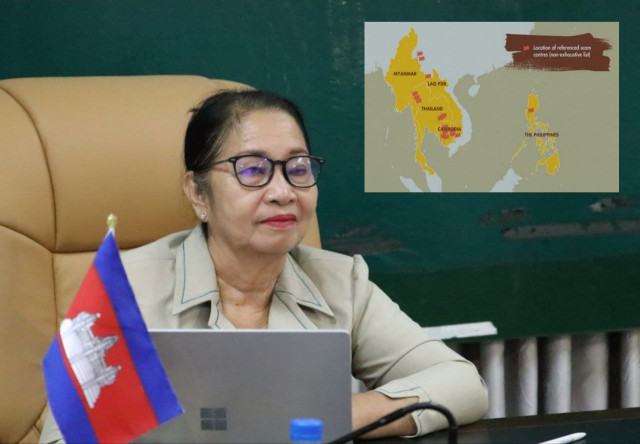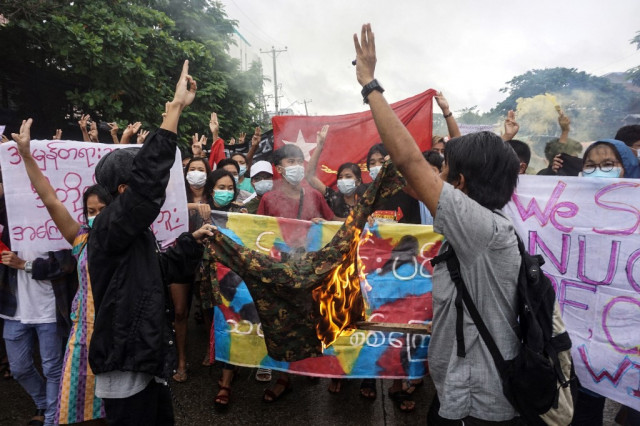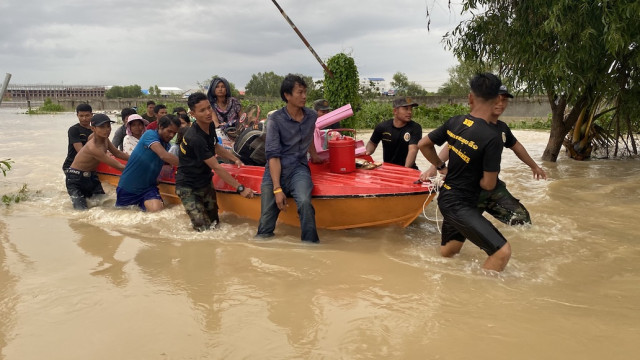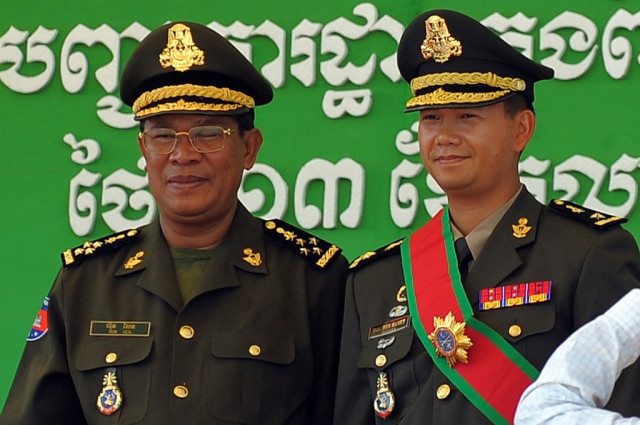Cambodia Challenges UN on Scam Center Claims

- By Phoung Vantha
- August 31, 2023 3:11 PM
PHNOM PENH – Cambodia will ask the UN for evidence to support a human trafficking report which claims about 100,000 people are being forced to work in online scam centers.
The UN Human Rights Office report says the workers are among hundreds of thousands of people forced by criminal gangs into online criminality in Southeast Asia - from romance-investment scams and crypto fraud to illegal gambling.
Vice president of the National Committee for Combating Human Trafficking Chou Bun Eng said an expert team will question the UN.
“We want to see the evidence of why they dare to say that 100,000 people were trapped in the scam labor force and by human trafficking,” she said.
“It is a lot of people. If they stood in line on the road they would stretch for many kilometers. So where were they hiding?
Authorities had received about 1,000 requests from individuals for help. Some had not been involved in scams.
“We have identified them based on national and international law,” she said.
She suggests that the UN team come to investigate, inspect, and carry out interviews to find out the real number of victims because its estimate was based on feelings.
Cambodia was the victim of allegations from other countries but it was a small country which couldn't hide that many people. The accusations were badly affecting Cambodia's image. Countries making them must be responsible, not only Cambodia.
The report said online scam centres were or had been reported in Phnom Penh, Kandal, Pursat, Koh Kong, Bavet, Preah Sihanouk, Oddar Meanchey, Svay Rieng, including in the Dara Sakor and Henge Thmorda special economic zones.
“Credible sources indicate that at least 120,000 people across Myanmar may be held in situations where they are forced to carry out online scams, with estimates in Cambodia similarly at around 100,000,” it says.
“Other states in the region, including Lao PDR, the Philippines and Thailand, have also been identified as main countries of destination or transit where at least tens of thousands of people have been involved.”
Victims face a range of serious violations and abuses, including threats to their safety and security; and many have been subjected to torture and cruel, inhuman and degrading treatment or punishment, arbitrary detention, sexual violence, forced labour, and other human rights abuses.
Most people trafficked into the online scam operations are men, although women and adolescents are also among the victims.
Many are well-educated and come from across the ASEAN region as well as mainland China, Hong Kong and Taiwan, South Asia, Africa and Latin America.















